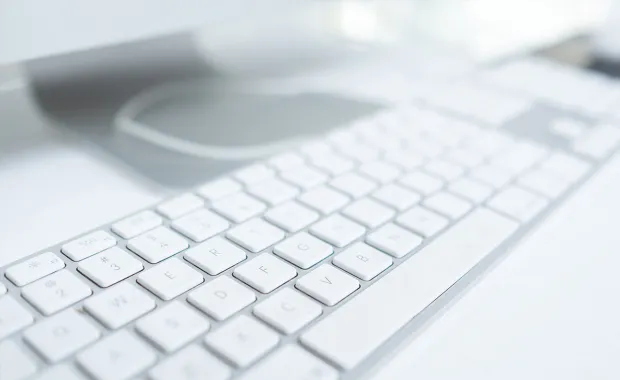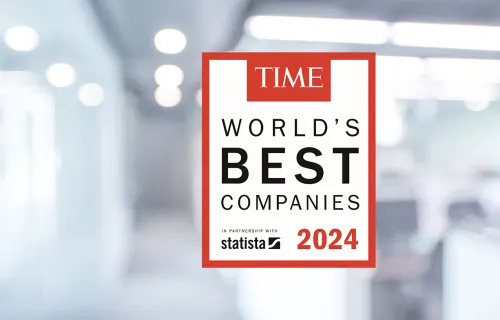Author: Christophe Demangeot
To the uninitiated, blockchain is a technology that seems to have had its time in the sun. Once the cryptocurrency bubble burst, people moved on to other things.
But the truth is that blockchain is so much more than the technology that makes Bitcoin possible. It’s a system that has a wealth of real-world applications – most of which we’re yet to scratch the surface of.
So I’d like to take a slightly different look at blockchain, this time from the perspective of someone who, over the course of seven years, emigrated and became a citizen of this country.
The inefficiencies of immigration
I was born in the UK to French parents. Prior to moving to Australia I had spent 12 years in the UK, 25 years in Paris and a year in the US. In 2010 I decided to make the move to Australia with my family, which ended up being a three-stage process:
- Coming to Australia on a sponsored 457 visa (2010)
- Becoming permanent resident (2015)
- Becoming an Australian citizen (2017)
I was lucky to be sponsored by a company for the first two phases, which are otherwise expensive and very time consuming. But given my diverse background and the wealth of travel I’d done, providing all the necessary evidence was challenging. Every step required a number of documents, including:
- Birth certificate (English)
- Passport (English and French)
- Diplomas (French)
- Police checks (several countries and languages)
- 10 years proof of residence (and remembering addresses)
- 10 years proof of travel (including within the EU, which doesn’t do passport stamps)
With all respect to Australia, the process was wildly efficient. The same documents regularly needed to be resent or reuploaded: I sent my birth certificate to the same agency three times over the course of the process, and each time it had to be photocopied or scanned, signed by a JP, physically posted AND sent via email with a very specific subject line.
As a result it took me eight months to secure my 457 visa, a year to get permanent residency, and 1.5 years to get my citizenship.
It was clear to me that needlessly resending documents and refilling forms was a waste of everyone's time. At first it seems a simple (and easily fixable) matter of inefficiency. But the truth is that there was a more serious underlying issue: trust. I began to ask questions:
- What happens to all my documents once they have been validated?
- Where is my personal information stored?
- Will the government department discard, delete or otherwise destroy these documents after a retention period?
- In the meantime, who has access to my information? Contractors workers? Potentially disgruntled staff? Hackers?
The truth was that the government knew everything about me, down to my mother's maiden name, which a bad actor could use to change my Xbox account password. But that could be the least of my worries – an organised cybercrime syndicate could gain access to all the necessary information for identity theft.
How blockchain technology could help immigration
Blockchain technology brings trust to an ecosystem where it may not otherwise exist. Think of a bank, which acts as the middleman when you want to buy groceries – a trusted authority that regulates the transaction between the buyer and seller. But banks have downsides: their service has a cost, and after the GFC these institutions aren’t as trusted as they once were (this, incidentally, is the exact reason Bitcoin was established.)
Now imagine a world where, say, I want to rent a house, but I only need to provide proof of my identity, rather than the identity itself. I previously held an account with an identity blockchain, where my passport and birth certificate were validated. This validation (a ‘transaction’ in blockchain terms) would be stored on the blockchain, becoming immutable. A set of rules could be built into the blockchain (a smart contract) to certify that a birth certificate is always valid, but a passport only for 10 years.
My renting agency would then have to request access to this data. I would grant access for the necessary period of time – whether a day, a month or five years – and the blockchain would validate the claims I make. This doesn’t mean that it sends a copy of my passport or my birth certificate – it instead simply says that these documents have been validated and are still current.
Blockchain could therefore solve so many issues around identity management and migration, even if the system is only recognised within the government department. But while there’s a massive opportunity to develop such a system, getting inter-agency (let alone international) agreement remains a challenge. New validation practices would need to be adopted, and without a third party organising it, the cost of the system would need to be shared.
But the benefits to the individual are immense. We’d reclaim control over our data, and would only have to show that our claims are valid, rather than having to supply and resupply the actual data.
In the scheme of things this is just an incredibly narrow example of the endless potential of blockchain. Who knows how many systems and processes could be replaced that I haven’t personally struggled with? And the sooner organisations both private and public realise the benefits of this tech, the better off we’ll all be.
Blockchain at CGI
At CGI, we help organisations unlock the potential of blockchain-driven networks and value chains across industries like tech, pharma, supply chain management, energy and more.
We do this by bringing together diverse teams – end users, business owners and industry/technology experts – to develop blockchain-enabled services that align with business objectives and satisfy technology requirements. It’s an incredibly exciting space to be in, and one that offers fantastic opportunities to envision, develop and test use cases for blockchain.




